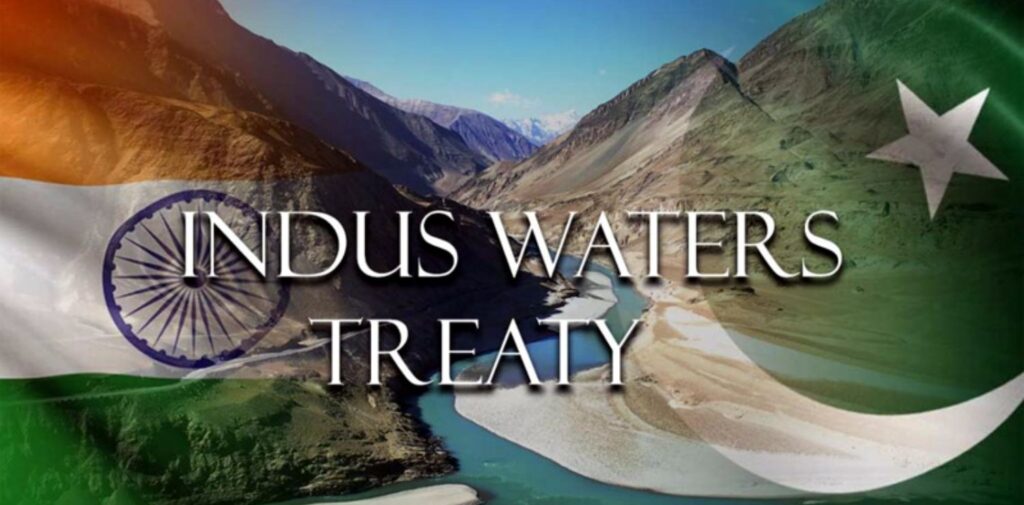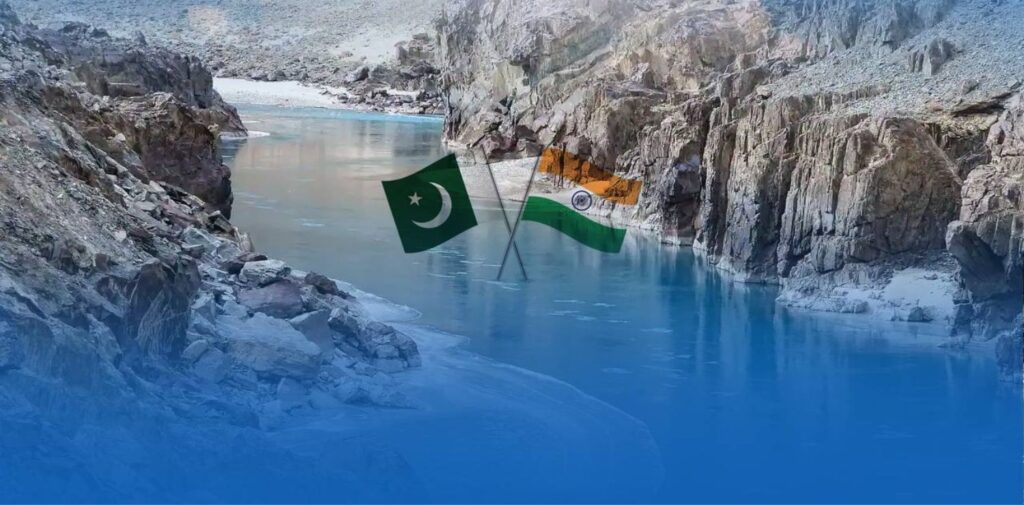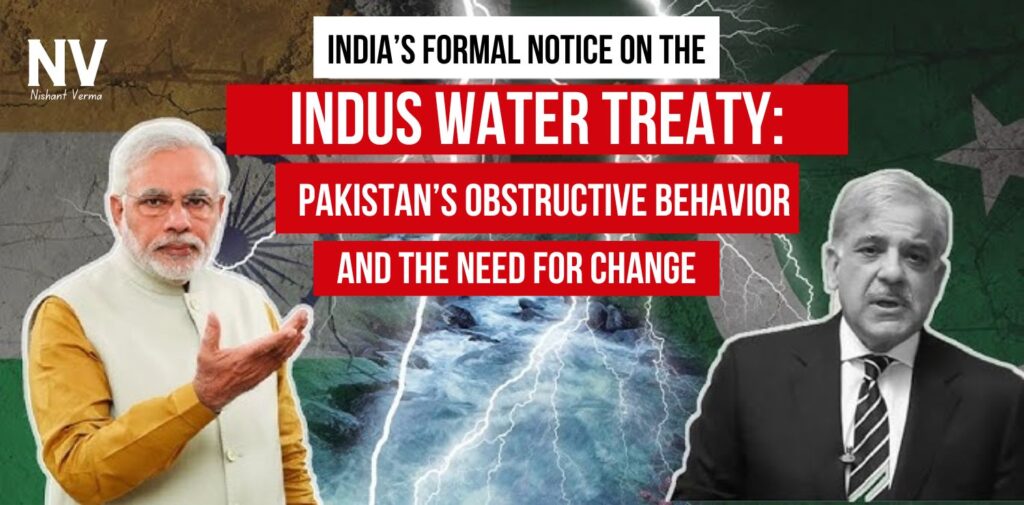India has formally served a notice to Pakistan demanding a review and modification of the 1960 Indus Water Treaty (IWT), a move that underscores rising tensions between the two countries over the management of water resources. India’s decision to call for a revision stems from its growing frustration with Pakistan’s “obstructive” behavior and other geopolitical issues that have surfaced over the years. With the notice being delivered on August 30, 2024, India has officially signaled its intention to update a treaty that has outlived its relevance in many ways.
Why the Indus Water Treaty Needs a Reassessment
The IWT was designed over six decades ago and divided the waters of the Indus river system between the two countries, giving control of the eastern rivers (Sutlej, Beas, and Ravi) to India, while Pakistan received the western rivers (Indus, Jhelum, and Chenab). While the treaty is often hailed as one of the most successful water-sharing agreements, it is increasingly seen as outdated in light of the contemporary challenges facing both nations.

India has flagged several reasons that justify the need for modifications. One key concern is the demographic shifts within India, particularly the increased demand for water in agriculture and urban centers due to population growth. The treaty, in its original form, no longer adequately addresses the water needs of modern India, where both irrigation and urban consumption have skyrocketed.
Moreover, India is rapidly accelerating its clean energy initiatives, with hydropower playing a crucial role. However, projects like the Ratle and Kishenganga hydropower plants have been consistently obstructed by Pakistan, which has sought arbitration in these matters despite India adhering to the treaty’s rules. The failure of Pakistan to engage constructively on these projects has frustrated Indian officials, prompting calls for a more equitable arrangement.
The Impact of Cross-Border Terrorism
One of the most contentious issues affecting India’s stance is the continued cross-border terrorism emanating from Pakistan, particularly in the Kashmir region. This persistent security threat not only complicates bilateral relations but also hampers India’s ability to fully utilize its rights under the IWT. Indian officials argue that Pakistan’s support for terror groups has eroded the spirit of cooperation envisioned by the treaty. As a result, there is a growing sentiment within India that the country should no longer be bound by an agreement that Pakistan uses as a tool to gain leverage in international forums, while simultaneously harboring terror elements.
Pakistan’s Intransigence
Pakistan’s obstructionist attitude has long been a sticking point for India. By constantly seeking international arbitration over hydropower projects, Pakistan has slowed down India’s efforts to harness the full potential of its water resources. For example, the World Bank’s dual involvement in activating both a Neutral Expert and a Court of Arbitration has drawn sharp criticism from India. Indian officials argue that this has led to unnecessary delays in resolving disputes and that the treaty’s dispute resolution mechanisms need to be reassessed.

Further, Pakistan has not taken sufficient steps to address India’s legitimate concerns regarding environmental and demographic changes. While India has been pushing for more hydropower to meet its clean energy goals, Pakistan has consistently raised objections that have stalled these critical projects. This pattern of behavior shows that Pakistan is more interested in using the treaty as a political tool than in fostering genuine cooperation over water resources.
A Treaty of Generosity—Used Against India
The IWT, as originally designed, was seen as overly generous to Pakistan, allowing it control over the bulk of the Indus system’s waters. While India agreed to these terms in the hope of fostering peaceful cooperation, the expected goodwill has not materialized. Instead, Pakistan has consistently used the treaty to internationalize its disputes with India, portraying itself as a victim while obstructing India’s rightful use of water for development.
Pakistan has also failed to adapt to new realities, particularly when it comes to India’s development of hydropower projects that adhere to the treaty. Rather than cooperate, Pakistan has dragged India into legal battles, using the treaty as a weapon in international disputes.
Domestic Pressure in India
There has been growing domestic pressure within India, particularly from states like Punjab, Haryana, and Jammu and Kashmir, to renegotiate the terms of the IWT. In these regions, there is a strong demand for greater access to the waters that flow through Indian territory, which are currently restricted by the treaty’s provisions. The original agreement was signed without adequate consultation with local stakeholders, and many now argue that their water rights were sacrificed in the name of international diplomacy. As the political climate in these states becomes more assertive, the demand for revising the treaty has intensified.
India’s Strategic Imperative
India’s call for modifying the treaty is not just about addressing past grievances—it is also a strategic imperative for the future. As the country seeks to meet its climate goals and ensure water security for its growing population, it cannot afford to remain constrained by an outdated agreement. The IWT, while a landmark achievement in 1960, no longer serves India’s national interests, especially in light of Pakistan’s continued hostility and obstructionism.

Moreover, with Pakistan’s economic and political situation becoming increasingly precarious, there is a fear that Islamabad could use the treaty as a bargaining chip in future negotiations, further compromising India’s ability to manage its water resources effectively. India’s formal notice, therefore, is a clear signal that it is no longer willing to tolerate Pakistan’s intransigence and will take whatever steps are necessary to safeguard its water rights.
Conclusion
India’s formal notice to Pakistan regarding the Indus Water Treaty marks a significant shift in its approach to managing cross-border water resources. With Pakistan’s obstructive behavior, demographic changes, and the pressing need for clean energy, India has rightly sought a revision of the treaty to reflect the realities of the 21st century. Pakistan’s continued support for terrorism and its use of the treaty as a political tool only serve to further justify India’s stance. As tensions rise, the future of the IWT hangs in the balance, but one thing is clear: India will no longer allow Pakistan to dictate the terms of its water security.




